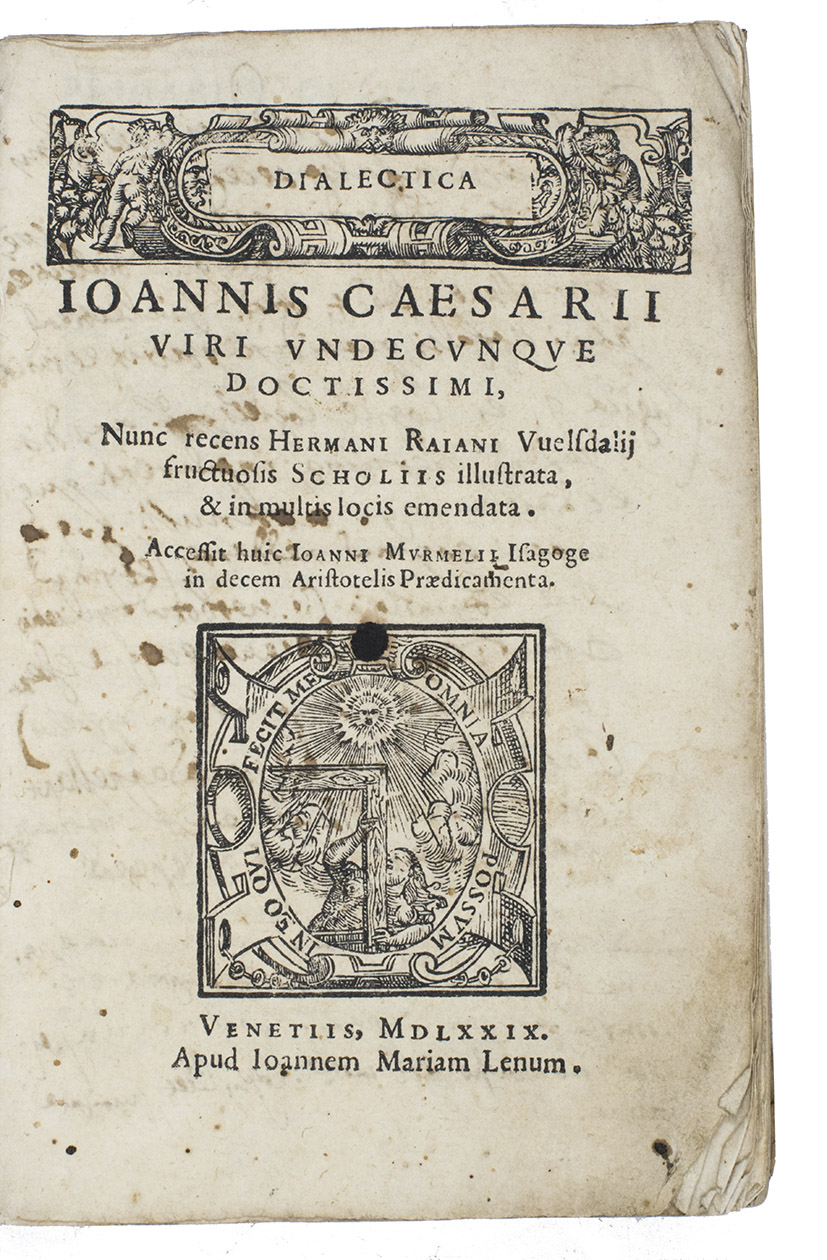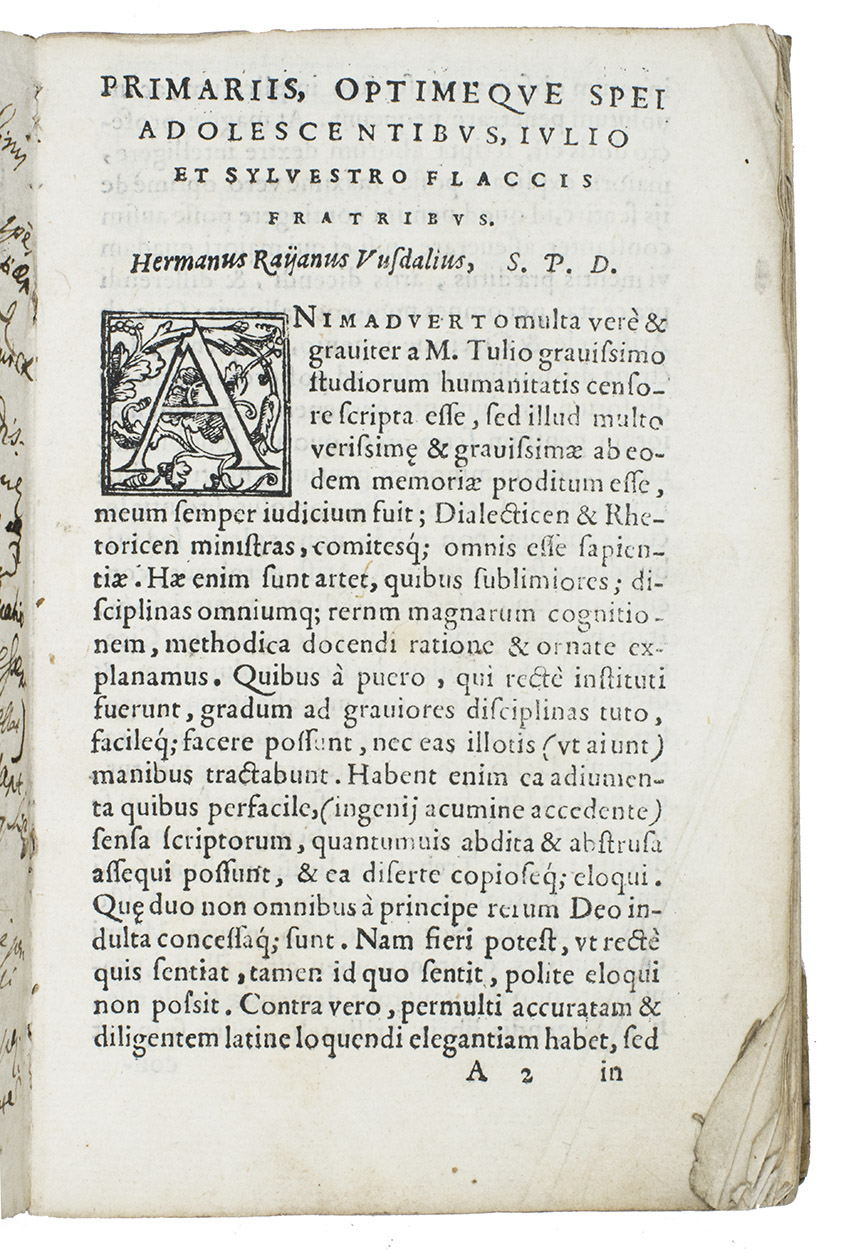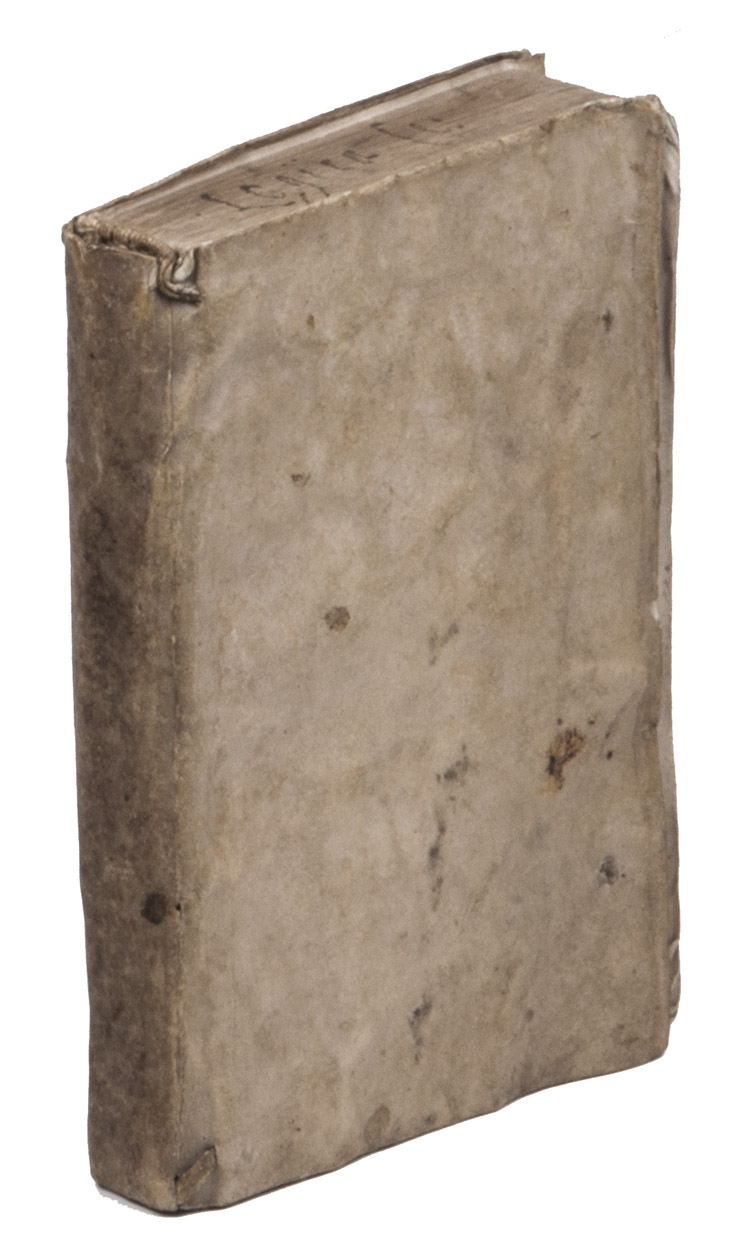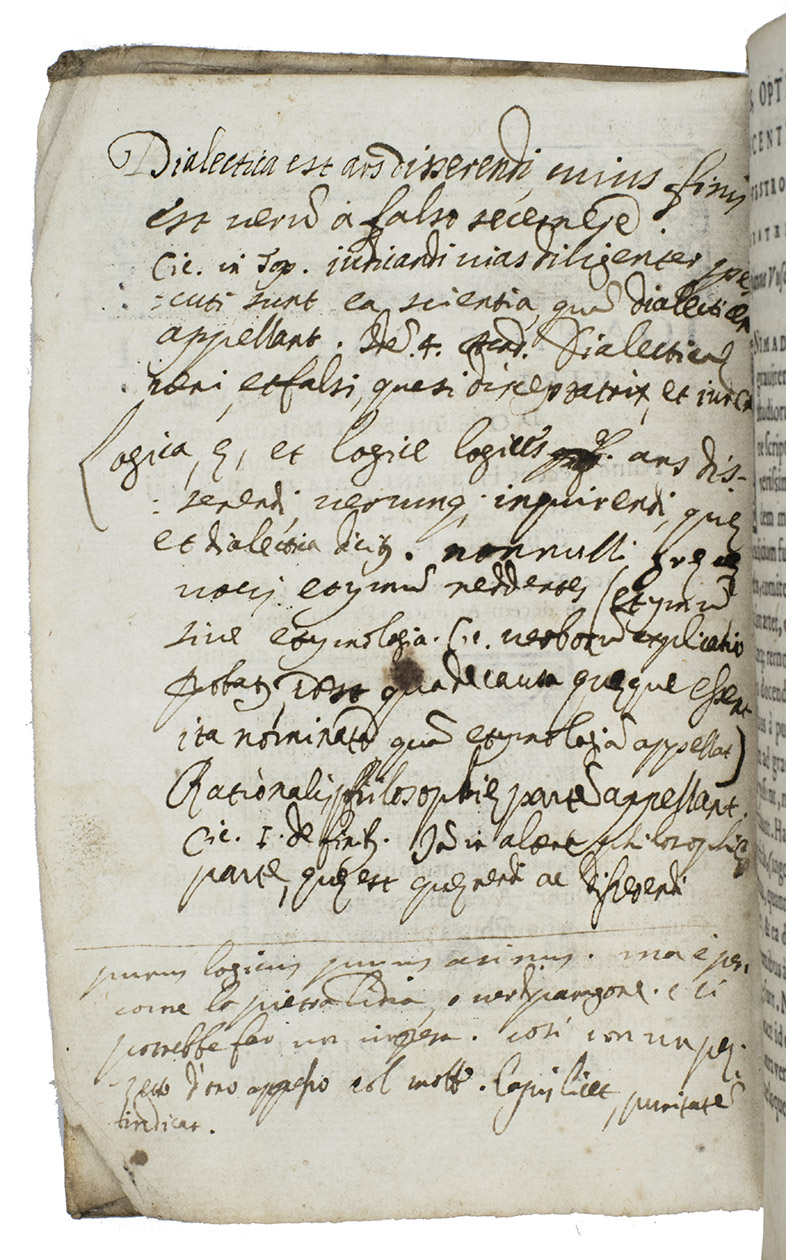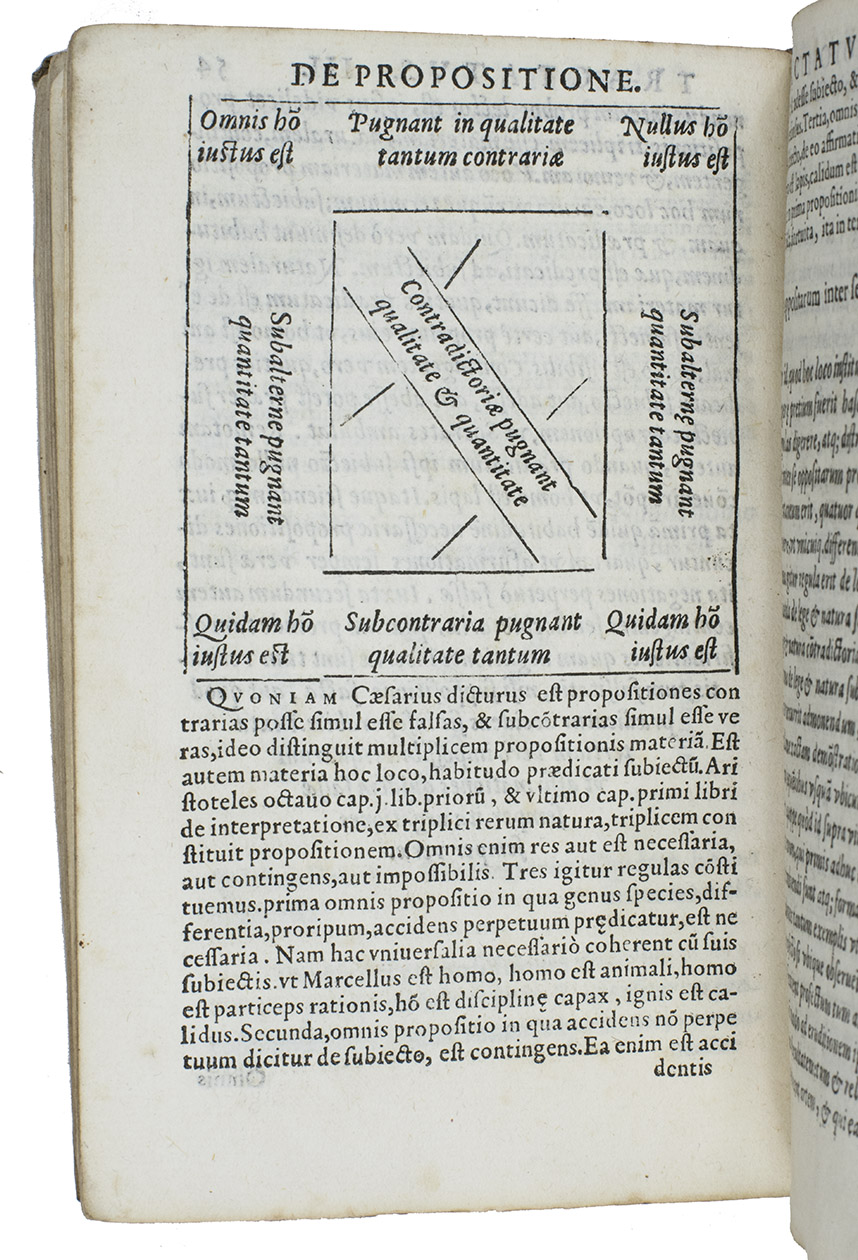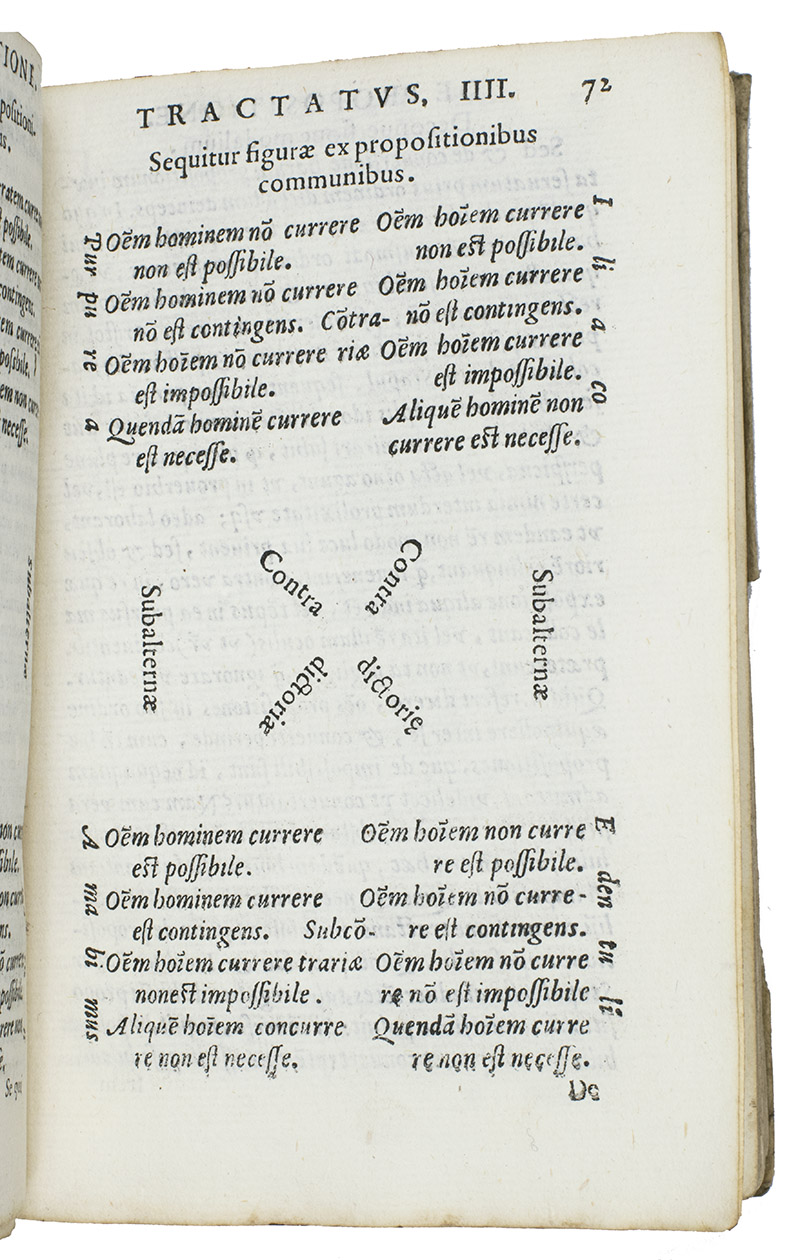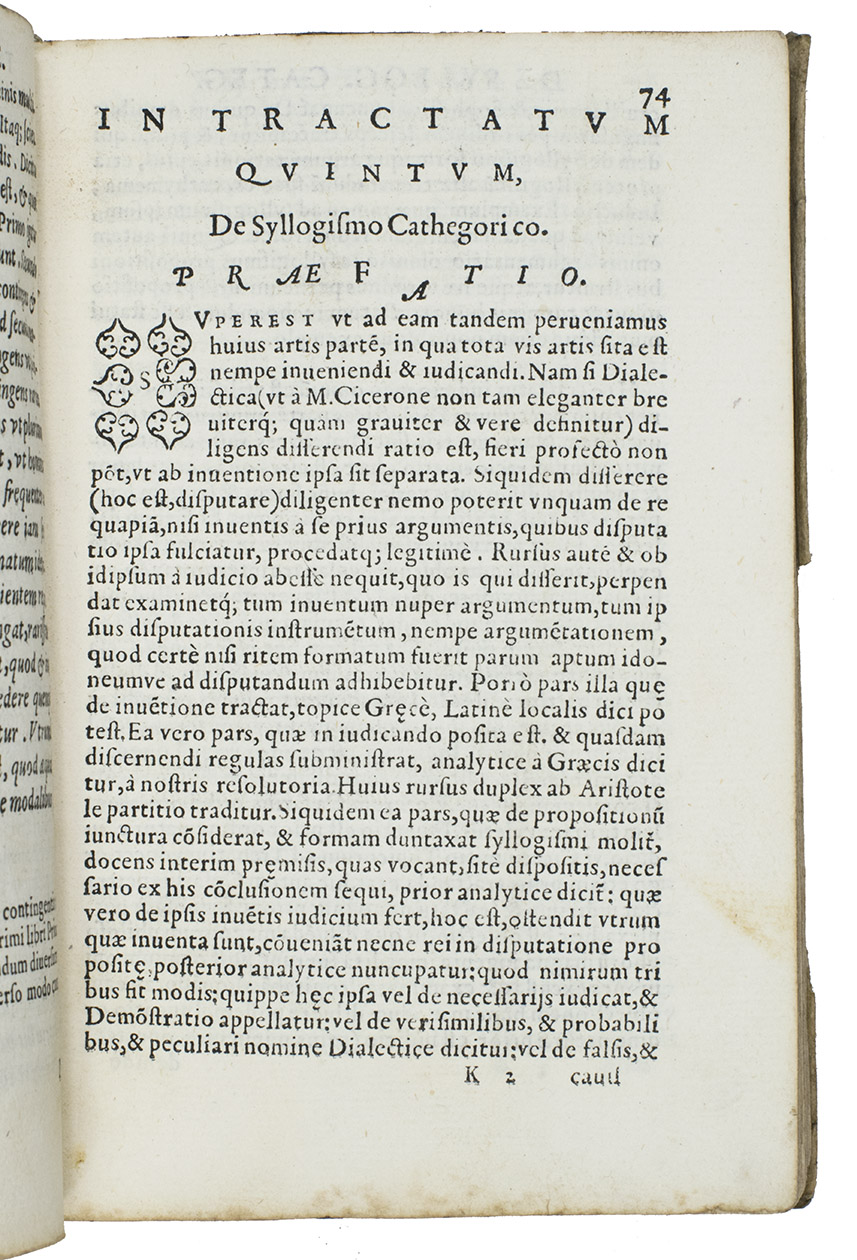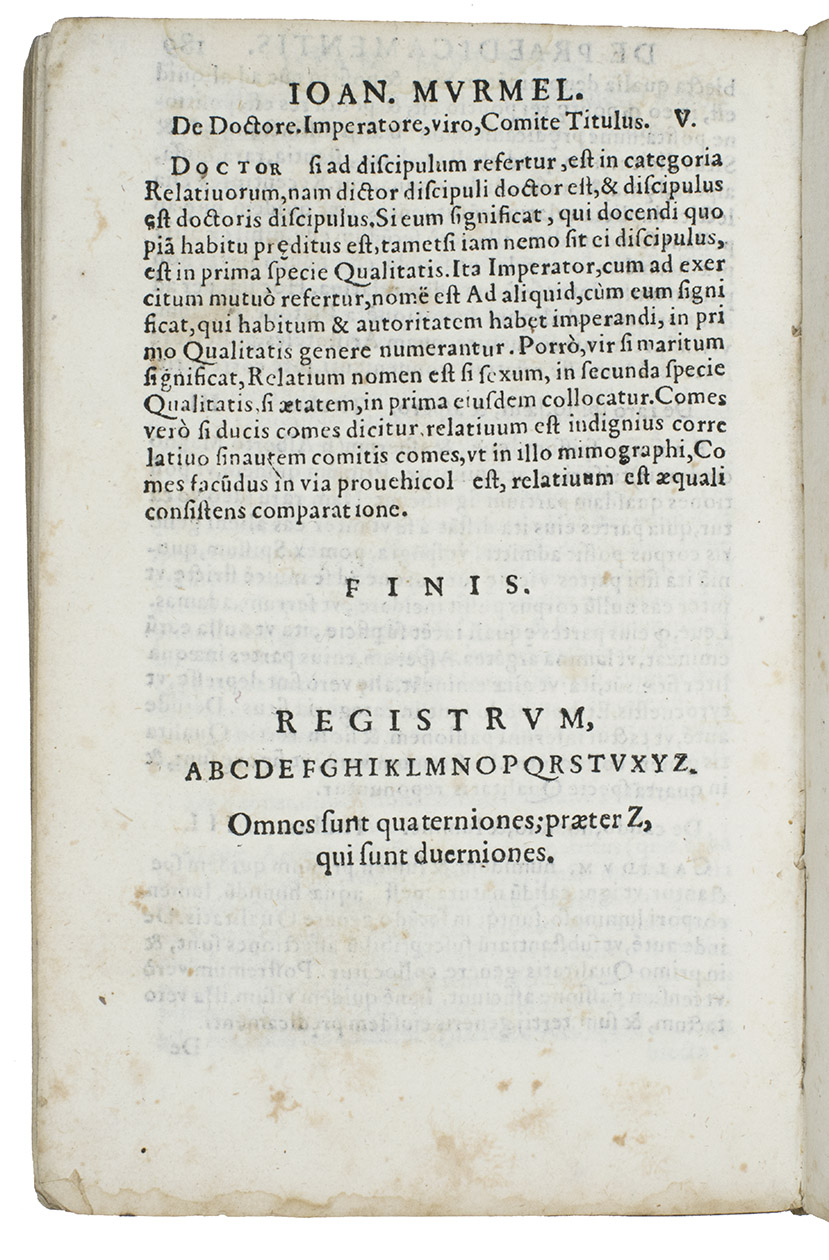CAESARIUS, Johannes.
Dialectica ... nunc recens Hermani Raiani Welsdalii fructuosis scholiis illustrata, & in multis locis emendata. Accessit huic Ioanni Murmelii Isagoge in decem Aristotelis Praedicamentas.
Venice, Giovanni Maria Leni, 1579. 8vo. With Lenis woodcut device on the title-page (a figure holding a set square up to the sun, in a scrollwork cartouche with motto, "In eo qui fecit me omnia possum") which has the letterpress title "Dialectica" in a woodcut factotum with scrollwork and putti at the head, and woodcut decorated initials. Set in roman and italic type with occasional Greek. Contemporary vellum. "189" [= 179], [1 blank] ll.
€ 2,500
Rare edition of a popular school textbook on dialectics (logic) by the important German humanist Johannes Caesarius (Jülich ca. 1468-Weidenbach near Cologne 1550). Here edited and enlarged with notes by his student Hermann Rayanus (Welsdalius) (fl. 1555-1577), also a celebrated German humanist teacher, and with the introduction to Aristotle's rules on rhetoric by Johannes Murmellius (1480-1517), famous Dutch humanist, poet and teacher, author of one of the most popular Latin primers, the Pappa puerorum. These additions appeared in Gabriel Cotiers 1556 Lyon edition, which others appear to have followed, including Lenis 1573 and present 1579 editions (both with the present device and factotum). We havent seen the 1540 Paris edition by Colines, but we doubt Buissons claim that it includes Rayanuss notes.
It quickly joined the earlier and influenced the later standard textbooks on the subject by Rudolph Agricola (1515), Philip Melanchthon (1520) and Petrus Ramus (1543), each of the four approaching a hundred editions in the 16th century. Melanchthon praised Caesariuss highly in his 1533 Rhetorices elementa and urged all to read it (Bary, pp. 48 & 51, citing Mack for the numbers of editions ranging from 73 to 90, though the actual numbers must be somewhat higher). Caesarius himself revised his text many times up to his death in 1550, notably for the 1526 edition and Coliness Paris edition of 1537, and his students added to it after his death.
Together with Murmellius and Hamelmann he established humanist curricula for both public and private education. Erasmus dedicated his translation of Gaza's Greek grammar to Caesarius. There are some letters to and from Erasmus preserved, but it is obvious that they continued to write to each other as good friends.
With early manuscript notes in Latin on blank verso of title and last blank. Slight traces of use, some minor stains, vellum slightly wrinkled, but still in good condition. Contemporaries of Erasmus I, pp. 238-239; Scardilli et al., Incunaboli e cinquecentine della Biblioteca comunale di Troina 50; USTC 817541; cf. Buisson, Répertoire des ouvrages pédagogiques, p. 103 (similar 1556 Lyon ed.); BMC STC German p. 727 (similar 1559 Cologne ed.); this edition not in Adams; BMC STC Italian; for the author and text: Corien Bary, De Dialectica van Johannes Caesarius (ca. 1468-1550), Dutch masters thesis, Catholic University Nijmegen, 2004.
Related Subjects:
